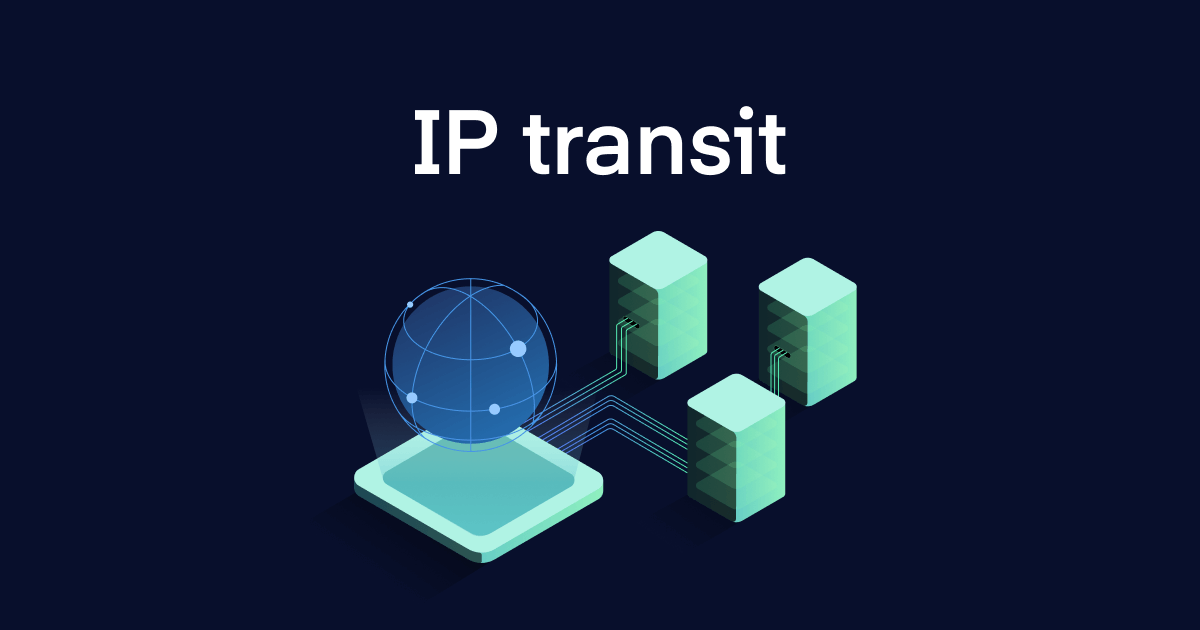In the ever-changing world of internet connectivity, businesses big and small rely on IP transit to give an uninterrupted connection to the digital world. IP transit is at the core of all modern communication networks, from accessing cloud-based services, to powering platforms for e-commerce. This article will examine IP Transit, IP Transit providers, their services, and prices of IP Transit.

IP transit is also known as internet transit. It permits traffic from networks (also known as “traffic”) to cross or “transit” through a network. Users can then connect to the wider internet. IP transit companies are organizations who own the infrastructure to send data packets over networks. These companies play a vital role in ensuring reliable and efficient internet connectivity for both businesses and consumers.
When it comes to IP transit, businesses have many choices to select from. Some providers provide basic transit services that allow access to the internet without any additional or customized features. Some providers offer more advanced services like managed IP transit which includes extra support, monitoring and security options. The kind of service you select is dependent on the needs and demands of your company.
Pricing is a key factor to take into consideration when selecting the right IP transit service provider. Prices for IP transit could be influenced by factors such as bandwidth requirements, geographic location and service-level agreements. Knowing the pricing structures, cost models and service levels that different service providers offer will aid businesses in making educated choices. For more information, click IP Transit Costs
In addition to pricing companies should also take into consideration the reliability and performance of the IP transit company. Carrier-grade networks, with backbone connectivity of either 100G or 400G, can provide the capacity and reliability to support mission-critical applications and services. End-to-end automation increases efficiency and ensures users have a seamless experience.
IP-Access is a customisable and flexible solution for companies that are seeking to streamline their network connectivity. This solution to connectivity is ideal for companies with older installations or specific needs. With features like IPv4/31 and IPv6/127 exchange networks as defaults, companies can tailor their connectivity to meet their particular requirements without the hassle of BGP sessions.
IP-Access, when it comes to internet connectivity, also provides the basic DDoS (Distributed Denial of Service) protection against attacks that are volumetric. This provides an additional layer of protection for companies and their networks. This can protect against possible revenue loss as well as downtime caused by cyber threats.
Inter.link Portal provides a convenient cost-effective and efficient method to gain access to IP services for all businesses. In just a few clicks, businesses can configure and implement IP transit in minutes, choosing their preferred locations the bandwidth requirements, ports speed and duration of contract. This speeds up the process which saves time and money. The business can then concentrate on their core business.
IP transit is an essential part of the modern web which allows companies to connect and communicate with individuals from around the world. Understanding the basics of IP Transit, the role of IP Transit providers, their wide range of services, and how they calculate pricing and costs will allow businesses to make informed choices. They can also ensure that they have the connectivity to succeed in the technological world of today. IP Transit is at the core of all modern communications networks, be it for cloud-based services, supporting platforms like ecommerce or connecting distant offices.
